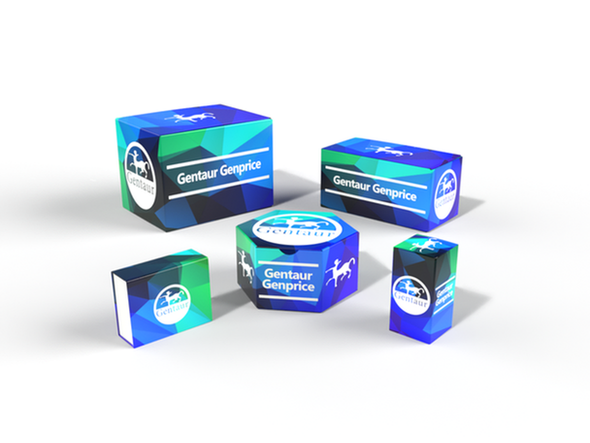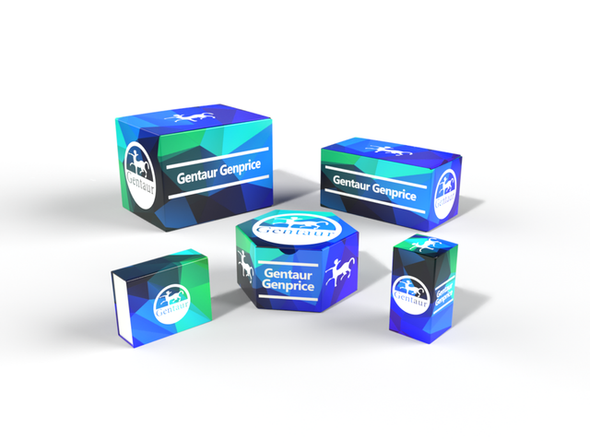BW
ATP1A1 (phospho-S23) polyclonal Antibody | BS64292
- SKU:
- BW-BS64292
- Availability:
- Usually ships in 5 working days
Description
ATP1A1 (phospho-S23) polyclonal Antibody | BS64292 | Gentaur UK, US & Europe Distribution
Host: Rabbit
Reactivity: Human
Application: WB
Application Range: WB: 1:500~1:1000
Background: The ubiquitously expressed sodium/potassium-ATPase (Na+/K+-ATPase) exists as a oligomeric plasma membrane complex that couples the hydrolysis of one molecule of ATP to the importation of three Na+ ions and two K+ ions against their respective electrochemical gradients. As a member of the P-type family of ion motives, Na+/K+-ATPase plays a critical role in maintaining cellular volume, resting membrane potential and Na+-coupled solute transport. Multiple isoforms of three subunits, α, β and γ, comprise to form the Na+/K+-ATPase oligomer. The α subunit contains the binding sites for ATP and the cations; the glycosylated β subunit ensures correct folding and membrane insertion of the α subunits. The small γ subunit co-localizes with the α subunit in nephron segments, where it increases the affinity of Na+/K+-ATPase for ATP. The β subunit, but not the γ subunit, is essential for normal activity of Na+/K+-ATPase.
Storage & Stability: Store at 4°C short term. Aliquot and store at -20°C long term. Avoid freeze-thaw cycles.
Specificity: p-ATP1A1 (S23) polyclonal Antibody detects endogenous levels of ATP1A1 protein only when phosphorylated at Ser23 .
Molecular Weight: ~ 100 kDa
Note: For research use only, not for use in diagnostic procedure.
Alternative Names: Sodium/potassium-transporting ATPase subunit alpha-1; Na (+) /K (+) ATPase alpha-1 subunit; Sodium pump subunit alpha-1; ATP1A1
Immunogen: Synthetic phosphopeptide derived from human ATP1A1 around the phosphorylation site of Serine23.
Conjugate: Unconjugated
Modification: Phosphorylation
Purification & Purity: The Antibody was affinity-purified from rabbit antiserum by affinity-chromatography using epitope-specific immunogen and the purity is > 95% (by SDS-PAGE) .
Pathway: Nuclear Receptor Signaling,Nuclear Receptor Signaling,


![Rat Atp1a1 Antibody (N-term S23) [AMM07548G] Rat Atp1a1 Antibody (N-term S23) [AMM07548G]](https://cdn11.bigcommerce.com/s-1rdwiq712m/images/stencil/590x590/products/60145/60449/gentaur-genprice__26005.1661610467__29809.1661628092__75433.1661676199__77988.1661684280__64362.1661692443__57885.1661862851.png?c=1)







